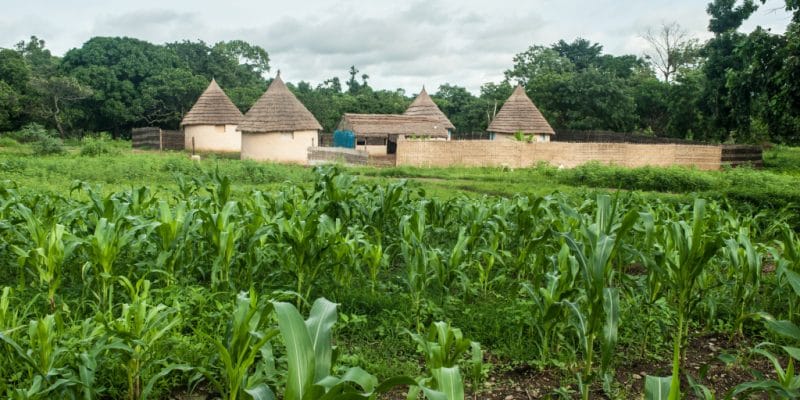In Senegal, the German Agency for International Development Cooperation (GIZ) is financing the installation of a solar pumping system in the locality of Khor Bango near the city of Saint-Louis. The new station will allow the irrigation of 400 market gardeners in the framework of the Sustainable Energy for Entrepreneurship and Climate Programme (PEDEC).
The locality of Khor Bango, located near the seaside town of Saint-Louis in Senegal, has a solar pumping system. The installation is powered by an array of solar panels (14.8 kW) and has a capacity of 2000 m3 water per day.
The pumping system, which is financed by the German Agency for International Development Cooperation (GIZ), will serve 400 market gardeners over a distance of 7 km via an irrigation canal as part of the Sustainable Energy for Entrepreneurship and Climate Programme (PEDEC) implemented by the non-governmental organisation (NGO) Enda Energie.
According to Sabine Müller, GIZ’s head of Africa, this newly installed system in Khor Bango “will strengthen the use of solar energy for productive water in order to increase agricultural yields. This approach will develop an innovative financing model for access to high-powered water pumps that can serve as alternatives to diesel pumps.
Strengthening water supply in rural areas
PEDEC aims to promote renewable energies, particularly solar photovoltaic energy, to create jobs for young people and women in rural Senegal. The initiative has already installed mini-photovoltaic solar power plants in the regions of Saint Louis, Thiès, Kolda, Fatick and the Niayes area for conservation (cold) and storage, processing (cereal milling, oil press), powering a multimedia centre and recharging batteries.
Read also-SENEGAL: In 2022, the government will devote €195 million to water and sanitation
Solar pumping systems are an ecological solution that is used more in rural areas not served by the electricity grid. The process involves capturing solar energy via photovoltaic panels to generate electricity that powers an electric pump to extract water. The system can only operate at night if additional sources such as a generator or an electrical grid are used. The components of a solar pumping system are the solar pump
The components of a solar pumping system are the solar pump, a pump controller, a dry-running sensor, a lightning arrester, solar panels, a pressure sensor or float, etc.
Benoit-Ivan Wansi






